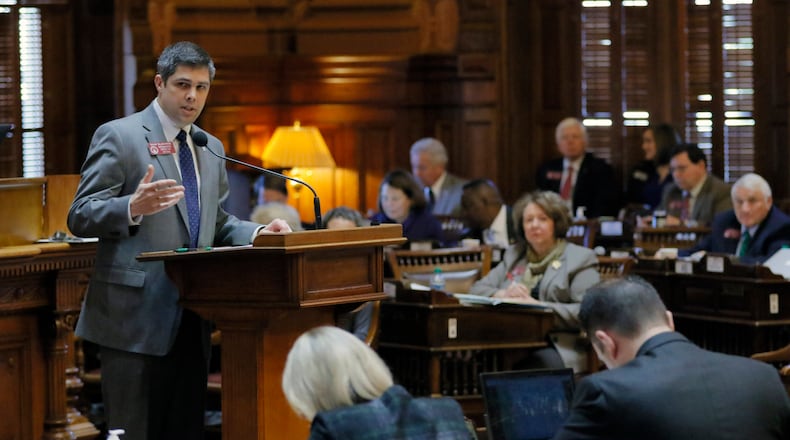The chairmen of the state House and Senate tax writing committees will head a panel this summer and fall that will review special-interest tax breaks that cost the state — and save some individuals and businesses — billions of dollars.
Lt. Gov. Burt Jones and House Speaker Jon Burns announced their picks for the review, which will take place between the 2023 and 2024 sessions of the General Assembly. They noted it will include a review of the $900 million-a-year film tax credit, which state auditors call the most lucrative such incentive in the country.
Gov. Brian Kemp’s budget team will also be involved in the review.
“This joint approach is a critical first step in the process of reviewing all of Georgia’s current tax credits,” Jones said. “My appointees are experts on tax policy and have been implementing and analyzing tax policy supporting economic development and Georgia’s ranking as the No. 1 state in which to do business for over a decade.”
Jones appointed Senate Finance Committee Chairman Chuck Hufstetler, R-Rome, to serve as a co-chair on behalf of the Senate. Jones also appointed Republican Sens. John Albers of Roswell, Greg Dolezal of Cumming and Bill Cowsert of Athens, and Democratic Sen. Michael “Doc” Rhett of Marietta.
Burns appointed House Ways and Means Committee Chairman Shaw Blackmon, R-Bonaire, to co-chair the review. He also appointed Democratic Rep. Debbie Buckner of Junction City, and Republican Reps. Kasey Carpenter of Dalton, Chuck Martin of Alpharetta, and Bruce Williamson of Monroe. House Appropriations Chairman Matt Hatchett, R-Dublin, will serve as an ex-officio member.
The group is expected to make recommendations before the 2024 session begins in January.
The panel will be the most closely watched group of lawmakers over the summer and fall at the Capitol.
When The Atlanta Journal-Constitution first wrote about a likely review of tax breaks in January, Statehouse lobbyists called it the “Lobbyists Full Employment Act” because businesses hire lobbyists to advocate for them.
State audit reviews that came out late last year raised new questions about whether the state is getting its money’s worth from some of the tax breaks that lobbyists helped push through the General Assembly with the promise that they’d create jobs.
The reviews found that in some cases, most of the jobs credited to the state tax breaks would have been created even without the credits or exemptions.
In the Senate, some leaders say they’d like to use any savings to further reduce income taxes on Georgians.
But Blackmon said lawmakers need to be careful not to eliminate incentives for businesses to create jobs.
The House and Senate passed legislation in 2021 that was a first step toward greater accountability: allowing the chairmen of the tax-writing committees to request reviews of a limited number of tax breaks each year.
Currently, such tax breaks often occur after supporters provide testimony or data from industry lobbyists or other parties that would benefit from them. Those advocates typically tell lawmakers the tax break will create or save jobs, and legislators give the OK.
Businesses hire lobbyists specifically to get such tax breaks passed because they can mean millions of dollars to a company.
Many times tax breaks pass in the final hours of a legislative session, when lawmakers are taking hundreds of votes and have little time to review what they are voting on.
Eliminating or even cutting back on such tax breaks once they are approved is extremely difficult because lobbyists push to keep them by maintaining that they’ve created jobs or provided huge benefits to the state.
About the Author
Keep Reading
The Latest
Featured


